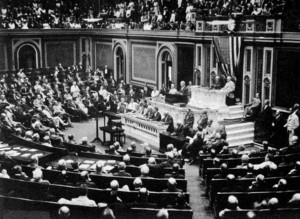Productivity Lessons Learned From The 113th US Congress
The divided Congress on its way out was the second-least productive of the past 40 years. Lawmakers passed 296 laws in 2013 and 2014, a dozen more than their predecessors in the 112th,113th Congress, Governing in Small Steps, Bloomberg Businessweek, December 29, 2014.
They were here to help. My project had been assigned an independent team to review our product defects. They were to review the defects and reprioritize them so we could work on the right defects in the right order.
The only problem was that before they could get through reviewing the daily batch of newly reported defects, a week would pass. Not only would a week pass but we were getting in new batches of defects each day. The team got horribly behind and by the time they decided on a new priority for any given defect, often the defect was already fixed or otherwise resolved (e.g., determined to be a duplicate of an existing defect, a testing error, etc.).
Senior management and the review team, however, were insistent that we needed to review the defects an additional time by an independent team. It showed that we were doing all due diligence to ensure a quality product. The fact that it didn’t improve quality at all but just generated additional management thrashing (e.g., questions back to the testers to be answered, questions back to the programmers to be answered, etc.) was besides the point. Activity was what was important, it seemed, not productivity nor effectiveness. We can always tell the COO, CQO and CEO what a great focus we had on quality!
One of the team members admitted to me that since they had to get together each day they made sure they always found some priorities to change. If they didn’t find anything to change, how would they demonstrate they were doing what senior management asked them to do?
To demonstrate the effectiveness of our reviews, I delayed adjusting the priorities that the team identified. Actually, I didn’t really delay anything I simply didn’t expedite the requests to change the priorities. What basically happened was that senior management was not happy with me being so slow at updating the priorities. They just knew that if the priority review was updated faster, then we would see an increase in open high priority defects in the backlog. Remember, the team process lagged the actual analysis and repair of the defects. So when I relented (I was outnumbered by VPs) and had my folks update all the priorities, it made no change to the defect trend chart. The “changes”, I concluded, were no different than if we randomly upgraded defect priorities five days after they were reported. The review was simply activity without useful productivity. In fact it was counterproductive as we had people in meetings and making changes that had no effective purpose.
The lesson learned is to not assume activity equates to productivity. I suspect this also applies to the U.S. Congress. Passing fewer laws might be an indicator of increased productivity.
What activities can you do away with on your project as they add the least value?
